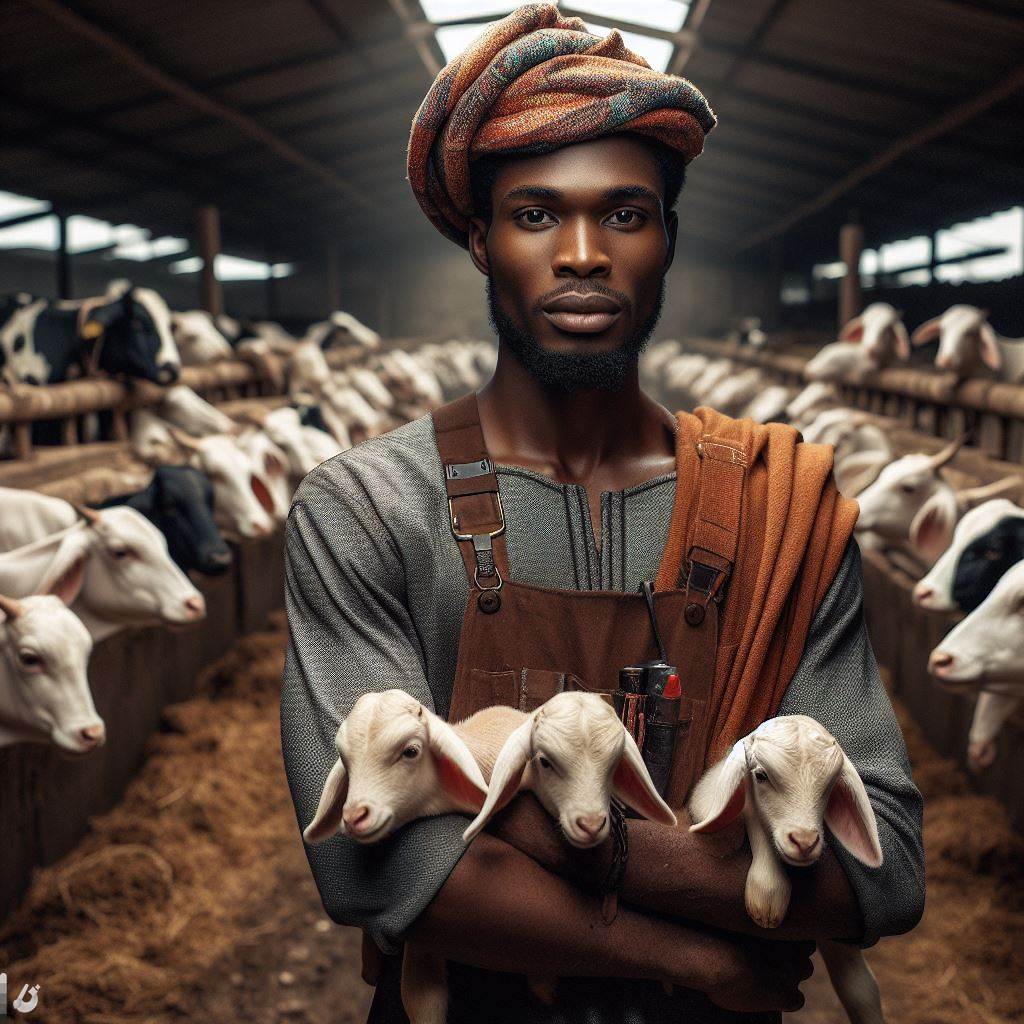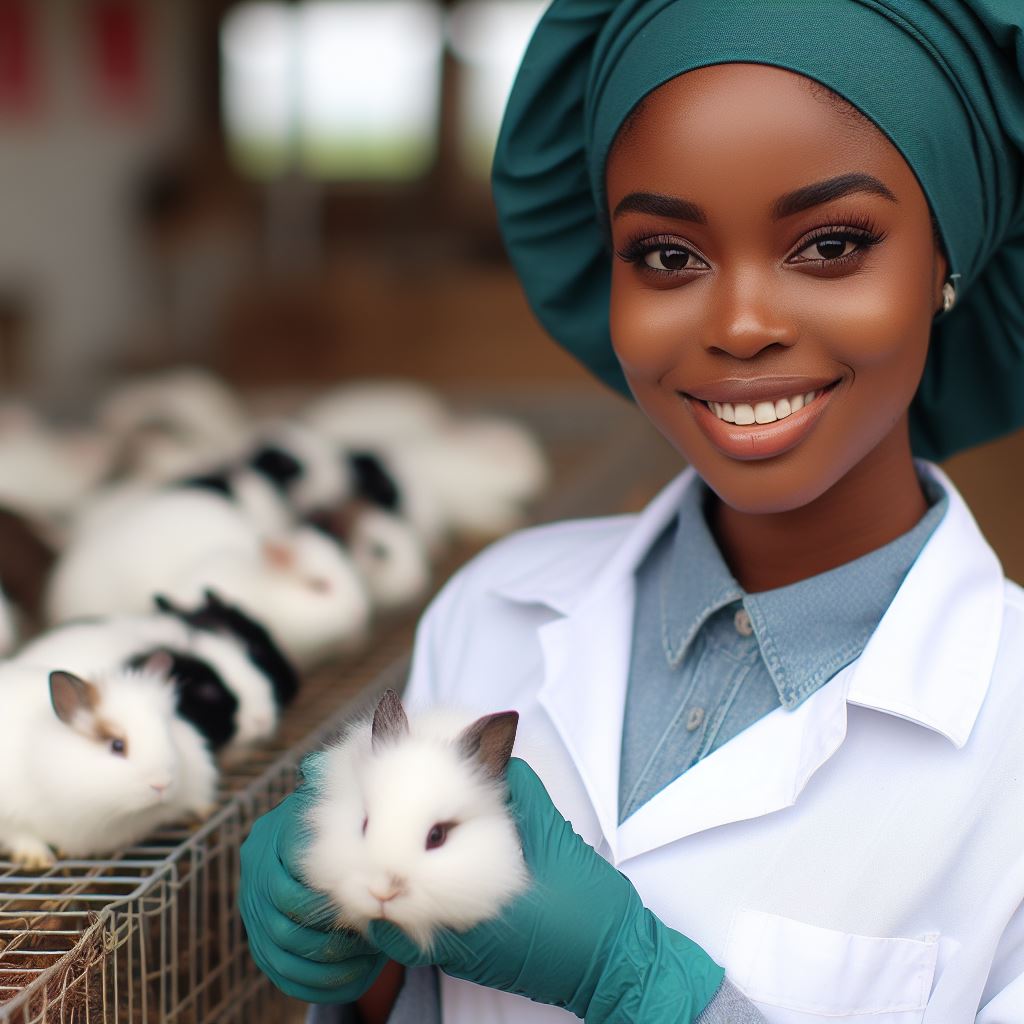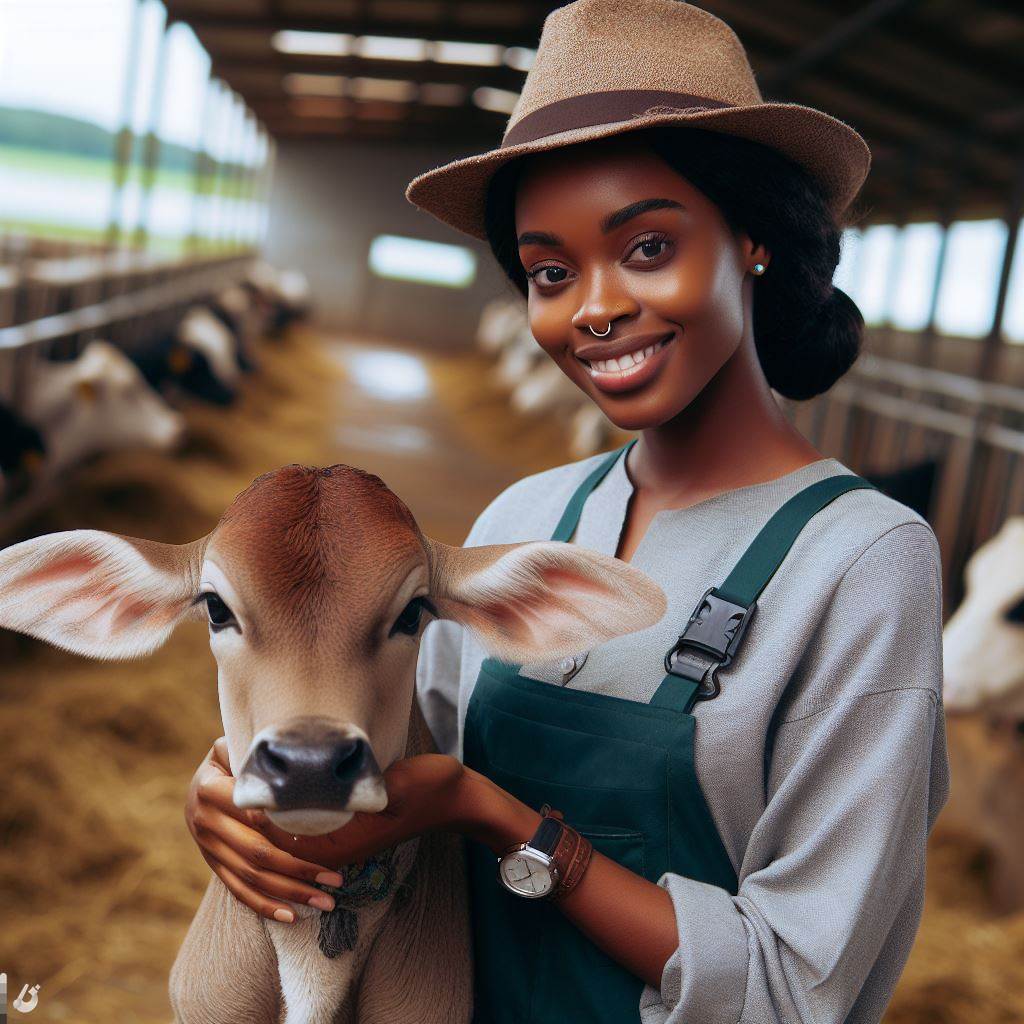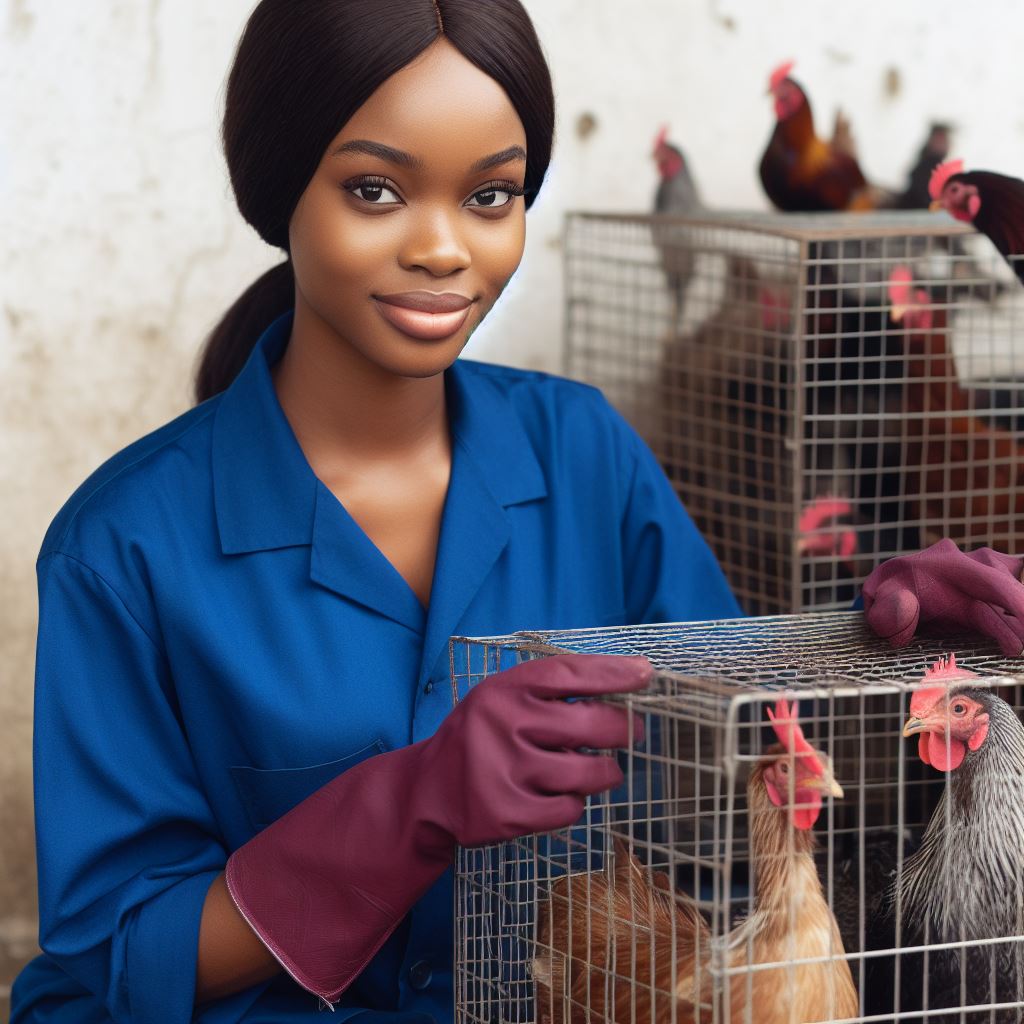Introduction
Animal breeding programs in Nigeria play a crucial role in improving the quality of livestock in the country.
These programs aim to enhance various traits, including productivity, disease resistance, and adaptability.
Comparing Nigerian animal breeding programs with global standards is important to ensure their effectiveness and competitiveness.
By evaluating Nigeria’s breeding efforts against international benchmarks, necessary improvements can be identified and implemented.
This comparison can help identify best practices, technologies, and methodologies that can be adopted in Nigerian programs.
It can also highlight areas where Nigerian programs excel, providing insights for global advancements.
Furthermore, comparing Nigerian programs with global standards can attract investment and collaborations from international organizations.
Strengthening Nigeria’s breeding programs can contribute to the country’s food security and economic development.
By aligning with global standards, Nigerian breeders can enhance their livestock’s genetic potential, yielding improved yields and profitability.
Ultimately, this post aims to explore the significance of comparing Nigerian animal breeding programs with global standards.
Through this evaluation, Nigerian breeders can ensure the sustainability and competitiveness of their programs in the global livestock industry.
Nigerian animal breeding programs
Existing programs and initiatives in Nigeria
Nigerian animal breeding programs play a crucial role in ensuring the country’s food security and economic development.
These programs encompass various initiatives aimed at improving the genetic potential of major livestock species such as cattle, poultry, and goats.
While Nigeria has made significant progress in this area, there are still several challenges that need to be addressed to meet global standards.
One of the existing programs in Nigeria is the National Animal Production Research Institute (NAPRI), which focuses on developing improved breeds of livestock through selective breeding.
NAPRI has made notable achievements in enhancing the productivity and adaptability of Nigerian indigenous breeds.
Their efforts have resulted in the development of breeds with qualities such as increased milk production, disease resistance, and better meat quality.
Another initiative is the National Livestock Breeding Policy, which aims to promote effective breeding practices for improved livestock production.
This policy emphasizes the need for breed improvement, utilizing artificial insemination, and establishing breed registries to ensure the traceability and genetic quality of animals. It also advocates for the use of modern technologies in breeding programs.
Major species such as cattle, poultry, and goats
In Nigeria, cattle breeding programs are essential due to the significant contribution of cattle to the country’s agriculture sector.
The crossbreeding of indigenous breeds with exotic breeds, such as the Holstein-Friesian, has been practiced to enhance milk production.
However, challenges remain, including limited access to high-quality breeding stock, inadequate infrastructure, and the lack of skilled personnel.
Poultry breeding programs in Nigeria have also made considerable progress.
The Nigerian Institute of Animal Science (NIAS) has taken steps to improve poultry genetics by promoting the use of superior parent stock and improved hatchery management practices.
However, issues like disease outbreaks, inadequate biosecurity measures, and high production costs hinder the optimization of poultry breeding programs.
Goat breeding programs have gained attention in recent years due to the growing demand for goat meat in Nigeria.
The establishment of breed improvement centers and the promotion of improved breeding techniques have helped enhance the quality and productivity of Nigerian goat breeds.
Nevertheless, limited access to credit facilities, poor breed selection, and inadequate market linkages pose challenges to the expansion of goat breeding programs.
Challenges faced by Nigerian programs
Despite the significant efforts made, Nigerian animal breeding programs still face challenges that hinder them from reaching global standards.
Insufficient funding and investment in research and development limit the implementation of innovative breeding technologies.
Inadequate infrastructure, including veterinary facilities and breed improvement centers, further compounds the challenges faced by these programs.
Another significant challenge is the lack of skilled personnel and limited access to training opportunities in animal breeding.
This hampers the adoption of modern breeding techniques and prevents the dissemination of knowledge and best practices within the industry.
Addressing these challenges requires collaboration among stakeholders, including government agencies, research institutions, private sector players, and international partners.
In essence, Nigerian animal breeding programs have made commendable progress in enhancing the genetic potential of major livestock species.
However, challenges such as limited access to high-quality breeding stock, inadequate infrastructure, and the lack of skilled personnel need to be addressed to meet global standards.
With concerted efforts and investments, Nigeria can develop a robust and sustainable animal breeding sector that contributes significantly to food security and economic growth.
Read: Innovations in Animal Genetics Research: Spotlight on Nigeria
Global standards in animal breeding
Animal breeding plays a crucial role in ensuring a sustainable and efficient livestock industry.
Global standards in this field are essential for achieving genetic improvement and maximizing productivity.
Transform Your Career with Expert Guidance
Get personalized mentorship consulting that’s tailored to your unique path. Our expert advice is actionable and exclusive.
Get StartedOverview of global standards and best practices in animal breeding
Global standards in animal breeding encompass various aspects such as genetic selection, reproductive technologies, and breed improvement programs.
Best practices include maintaining comprehensive genetic records, conducting regular performance evaluations, and adopting advanced breeding techniques.
The use of artificial insemination, embryo transfer, and genomic testing are also key components of global standards in animal breeding.
Importance of genetic improvement and selective breeding
Genetic improvement and selective breeding are vital for enhancing desirable traits in livestock, such as productivity, disease resistance, and adaptability.
Through careful selection and breeding, producers can improve the overall quality of their herds and flocks. This leads to better profitability and sustainability in the long run.
Selective breeding also helps preserve endangered breeds and promotes biodiversity within the livestock industry.
Examples of successful animal breeding programs from other countries
Several countries have implemented successful animal breeding programs that serve as benchmarks for Nigeria to aspire to.
For instance, New Zealand is renowned for its dairy industry.
Their breeding programs have focused on developing cows that are highly efficient milk producers.
Australia has made significant advancements in genetic selection for meat production.
Their programs have resulted in improved carcass quality and meat yield.
In the United States, the beef industry has implemented innovative breeding techniques to enhance marbling, tenderness, and overall beef quality.
Furthermore, countries like the Netherlands and Denmark have successfully utilized advanced reproductive technologies to improve pig genetics and increase litter sizes.
Comparing Nigerian animal breeding programs with global standards is essential for identifying areas of improvement and implementing best practices.
By adopting global standards, Nigeria can enhance its livestock industry, improve genetic traits, and contribute to overall agricultural sustainability.
Efforts should be made to leverage technological advancements, focus on genetic improvement, and invest in research and development to ensure the success of Nigerian animal breeding programs.
Read: Student Reviews: Pursuing Animal Physiology in Nigerian Universities
Comparison between Nigerian programs and global standards
In this blog section, we will discuss the comparison between Nigerian animal breeding programs and global standards, evaluate Nigerian programs in terms of genetic improvement, compare breeding techniques, technologies, and resources used, and analyze the impact of Nigerian programs on livestock quality and production.
Evaluation of Nigerian programs in terms of genetic improvement
When it comes to animal breeding programs, Nigeria has made significant strides, but how do they compare to global standards?
Firstly, let’s compare Nigerian programs with global standards.
Nigerian programs have made considerable progress, but they still have room for improvement when compared to global standards.
In terms of genetic improvement, Nigerian programs have shown promising results.
They have focused on selective breeding to improve the desired traits in livestock. However, there is still a need for more advanced techniques such as genetic markers and genomic selection.
Comparison of breeding techniques, technologies, and resources used
When comparing breeding techniques, technologies, and resources used, Nigerian programs often lag behind global standards.
Limited access to modern technologies and advanced breeding techniques hinders their progress.
Impact of Nigerian programs on livestock quality and production
Despite these challenges, Nigerian programs have had a positive impact on livestock quality and production.
The implementation of these programs has resulted in improved breed characteristics, increased productivity, and enhanced disease resistance.
To further improve Nigerian programs, it is crucial to invest in research and development.
By adopting modern breeding techniques, such as artificial insemination and embryo transfer, Nigeria can accelerate the genetic improvement of their livestock.
Another aspect to consider is the need for capacity building.
Training programs should be established to educate breeders and farmers about the latest advancements in animal breeding.
This will empower them to make informed decisions and implement effective breeding strategies.
Collaboration between Nigerian breeders and global experts is also vital.
By sharing knowledge and expertise, Nigerian programs can benefit from the success stories and experiences of other countries.
Government support plays a crucial role in the success of Nigerian programs.
Adequate funding, policy incentives, and infrastructure development are essential to create a conducive environment for animal breeding.
In fact, while Nigerian animal breeding programs have made significant progress, there is still work to be done to reach global standards.
By focusing on genetic improvement, adopting advanced techniques, and investing in research and development, Nigeria can enhance their programs and contribute to improved livestock quality and production.
Read: Renowned Animal Physiologists from Nigeria and Their Contributions

Key Findings and Areas for Improvement
Nigerian animal breeding programs have made significant progress in recent years.
The use of modern breeding techniques has led to the improvement of indigenous livestock breeds.
However, there is still a need for more investment in research and development to achieve global standards.
The lack of adequate funding has limited the expansion of breeding programs and affected their overall effectiveness.
Collaboration with international organizations can provide access to advanced genetic resources and expertise.
For sustainable improvement, there should be a focus on incorporating traits that contribute to resilience and adaptability.
Monitoring and evaluation systems must be established to track the progress and impact of breeding programs accurately.
The involvement of local communities and farmers is crucial for the success and acceptance of breeding initiatives.
Strengths and Weaknesses of Nigerian Animal Breeding Programs
Strengths
- Nigerian programs have successfully preserved and enhanced indigenous livestock breeds.
- Effective utilization of traditional knowledge and local resources has been a significant strength.
- The establishment of breed registries and breeding associations has facilitated better management and documentation.
- The active participation of small-scale farmers has contributed to the sustainability of breeding programs.
Weaknesses
- Limited financial resources have restricted the scale and impact of breeding programs.
- Insufficient infrastructure and lack of modern breeding facilities have hindered progress.
- Inadequate technical expertise and training opportunities have affected the adoption of new breeding techniques.
- The absence of a comprehensive breeding strategy has led to inconsistent results and inefficiencies.
Gaps between Nigerian Programs and Global Standards
Nigerian animal breeding programs still lag behind in terms of genetic selection and breed improvement.
The absence of genomic technologies and genetic evaluations hinder accurate and efficient breeding.
Limited access to superior breeding stock and advanced reproductive technologies is a significant gap.
Nigerian programs struggle to meet internationally recognized breeding objectives and breeding value estimation.
The lack of data infrastructure and centralized databases restricts the sharing and exchange of breeding information.
Potential Areas for Improvement and Innovation
Strengthening collaboration between research institutions, universities, and breeding programs can enhance expertise and knowledge sharing.
Investment in infrastructure, such as modern laboratories and breeding centers, is crucial for achieving global standards.
Increased funding from government and private sector stakeholders can provide the necessary resources for program expansion.
Incorporating precision breeding technique like marker-assisted selection can improve breeding efficiency and speed up genetic progress.
Developing a comprehensive national breeding strategy with clear goals and targets will provide a framework for program improvement.
Establishing a national genetic evaluation system will enable accurate estimation of breeding values and promote better breeding practices.
To achieve global standards, Nigerian animal breeding programs must address their weaknesses, bridge the gaps, and embrace innovation and collaboration.
With concerted efforts and adequate support, Nigeria can unlock the full potential of its livestock sector and contribute to global food security.
Read: The Role of Animal Physiology in Nigeria’s Biodiversity Conservation
Potential benefits of aligning with global standards
By aligning Nigerian animal breeding programs with global standards, the country can unlock numerous benefits.
First, there will be increased market access for Nigerian livestock products, allowing farmers and breeders to tap into a larger customer base both domestically and internationally.
This can lead to increased profitability and economic growth in the agricultural sector.
Advantages of adopting global standards in Nigerian programs
Adopting global standards also brings advantages in terms of improved reputation and credibility for Nigerian animal breeding programs.
Implementing international best practices and knowledge sharing can enhance the overall quality of livestock genetics in the country.
This, in turn, has positive impacts on livestock quality, as better genetics lead to healthier, more productive animals.
Nigerian farmers and breeders can benefit from increased efficiency and productivity resulting from adopting global standards.
Access to high-quality breeding stock enables them to improve their herds and increase profitability.
Additionally, standardized health and biosecurity protocols reduce the risk of diseases, protecting the livelihoods of farmers and ensuring the sustainability of the industry.
Impact on livestock quality, productivity, and sustainability
Sustainability is a crucial aspect to consider when aligning with global standards.
By implementing sustainable practices and reducing environmental impact, Nigerian animal breeding programs can minimize resource usage and improve feed efficiency.
This leads to a more environmentally friendly industry and enhances the resilience and adaptability of Nigerian livestock to changing conditions.
Economic benefits for farmers and the agricultural sector
The economic benefits of adopting global standards are significant.
Increased income opportunities for farmers, breeders, and other stakeholders contribute to poverty reduction and rural development.
Furthermore, the potential for exporting Nigerian livestock products opens up foreign exchange earnings and strengthens the country’s economic position.
Partnerships and investments from international organizations and businesses are more likely when Nigerian animal breeding programs align with global standards.
Such collaborations can bring in expertise, technology, and funding, further boosting the sector’s growth and development.
In short, aligning Nigerian animal breeding programs with global standards has far-reaching benefits.
From increased market access and improved livestock genetics to economic growth and sustainability, the advantages are numerous.
By embracing these standards, Nigeria can position itself as a formidable player in the global livestock market and ensure a prosperous future for its agricultural sector.
Conclusion
In this blog post, we explored the topic of comparing Nigerian animal breeding programs with global standards.
We discussed the main points, highlighting the importance of this comparison.
By comparing Nigerian programs with global standards, we can identify areas of improvement and work towards achieving global competitiveness.
It is crucial for increased efforts and collaboration to be made to improve Nigerian programs.
By doing so, we can enhance the quality of our animal breeding programs and contribute to the country’s overall development in the agricultural sector.
Let’s strive for excellence in our programs and foster collaboration to ensure Nigeria becomes a global leader in animal breeding.




